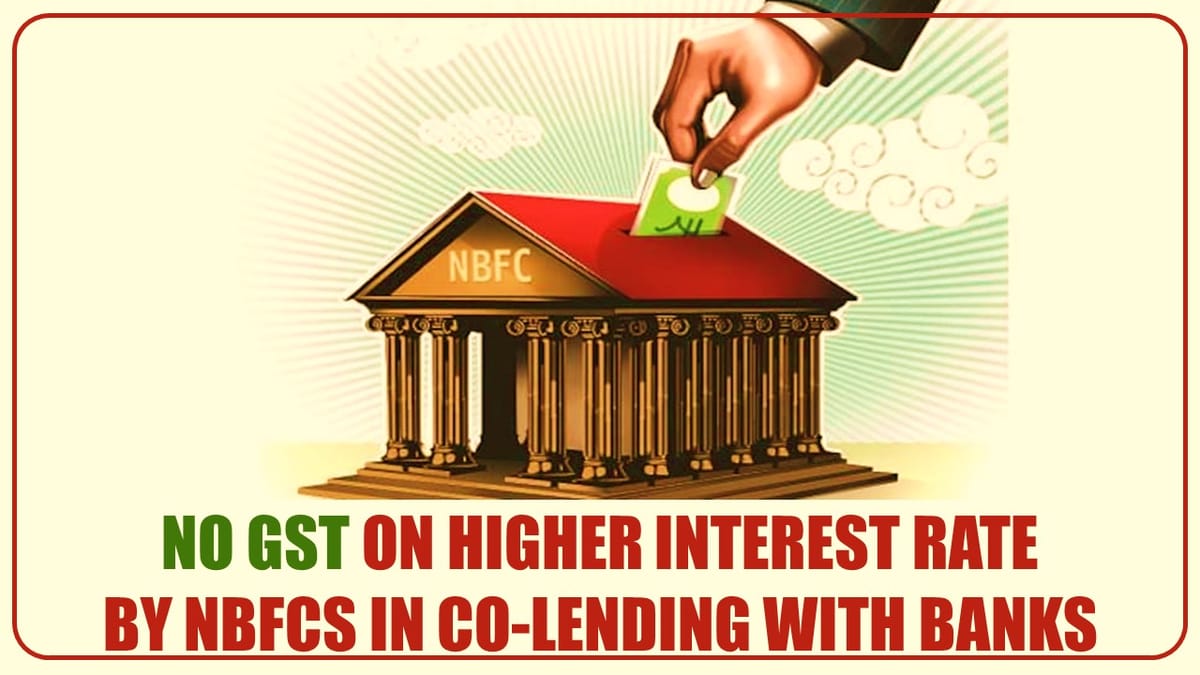Priyanka Kumari | Nov 30, 2023 |

No GST on Higher interest rate by NBFCs in co-lending with banks: Industry urges for clarification
The Finance Industry Development Council (FIDC), an NBFC representative body, urged the Central Board of Indirect Taxes and Customs (CBIC) on Thursday to clarify that the additional rate of interest retained by NBFC in a co-lending model with banks is not a consideration for any service and thus is not taxable under the Goods and Services Tax (GST).
FIDC sent a letter to Sanjay Kumar Agarwal (CBIC Chairman) after its members reported a review of NBFCs and banks by the Directorate General of GST Intelligence (DGGI), the CBIC intelligence unit tasked with monitoring GST evasion, to ascertain whether GST was evaded by these entities in the co-lending model for any service provided by one co-lender to another.
The rate of interest charged by the NBFC is higher than the rate of interest charged by banks under the co-origination arrangement, wherein the credit contributed is typically in the 80:20 ratio, due to the higher borrowing cost of NBFCs than banks and also because banks are the primary source of funding for NBFCs, according to FIDC.
According to the NBFC body, the higher rate of interest has no other purpose and does not serve as a consideration for any activity offered by the NBFC.
Apart from the interest income received from customers and shared between banks and NBFCs in the pre-agreed ratio, neither party shall remunerate the other party in any other way whatsoever under a different arrangement in which the banks structure co-lending as a post-disbursal takeover of their share in the loan on a consecutive basis.
The differential between the blended rate of interest charged to the borrower and the interest paid to banks/financial institutions on co-lent loans is referred to as income from interest.
This extra interest spread is an “income from interest” that attracts income tax and is not in any manner (by nature and spirit) a fee or charge, hence it is not liable to GST.
As the key counterparty for the borrower, the sourcing NBFC (NBFC sourcing the borrower) remains the single point of access for consumers. The sourcing NBFC doesn’t offer any new or extra services to the bank and continues to act as a lender to the borrower.
The Reserve Bank of India‘s co-lending strategy aims to deal with expanding credit demand in sectors such as MSME, agriculture, and housing by allowing banks and NBFCs to work together to make loans more affordable to end-borrowers.
In case of any Doubt regarding Membership you can mail us at contact@studycafe.in
Join Studycafe's WhatsApp Group or Telegram Channel for Latest Updates on Government Job, Sarkari Naukri, Private Jobs, Income Tax, GST, Companies Act, Judgements and CA, CS, ICWA, and MUCH MORE!"